Demagnetization by rapid spin transport
Scientists demonstrate experimentallt that ultrafast spin transport as key to femtosecond demagnetization.
Jan 27th, 2013
Read more
Scientists demonstrate experimentallt that ultrafast spin transport as key to femtosecond demagnetization.
Jan 27th, 2013
Read more Rice University scientists have taken an important step toward the creation of two-dimensional electronics with a process to make patterns in atom-thick layers that combine a conductor and an insulator.
Rice University scientists have taken an important step toward the creation of two-dimensional electronics with a process to make patterns in atom-thick layers that combine a conductor and an insulator.
Jan 27th, 2013
Read moreThe University of Glasgow, the Science and Technology Facilities Council (STFC) and Kelvin Nanotechnology Ltd (KNT) have formed Kelvin-Rutherford, a new venture combining their extensive resources to provide a complete nanotechnology service; delivering seamless support from device design through computer simulations to fabrication and evaluation in preparation for mass-production.
Jan 26th, 2013
Read moreEvery day scientists learn more about how the world works at the smallest scales. While this knowledge has the potential to help others, it's possible that the same discoveries can also be used in ways that cause widespread harm. A new study born out of a Federal Bureau of Investigation workshop held at the University of Notre Dame in September 2012, tackles this complex 'dual-use' aspect of nanotechnology research.
Jan 25th, 2013
Read moreINRS develops a nanohybrid with remarkable properties using a new laser-plasma process.
Jan 25th, 2013
Read more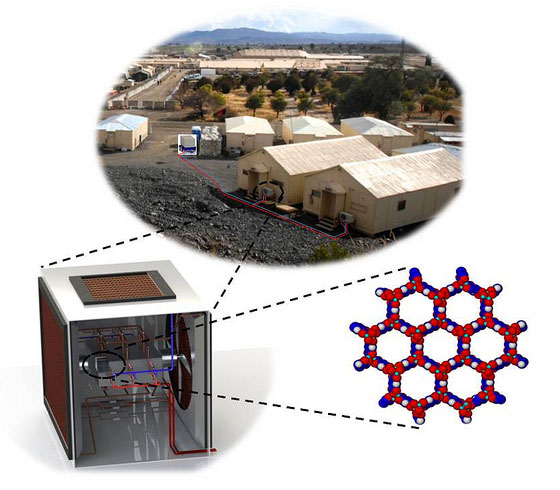 A new, energy-efficient air chilling system could keep troops on the front lines cool while using about half as much diesel as current systems. The system's decreased fuel consumption could also save lives by reducing attacks on American soldiers who deliver fuel to field operations.
A new, energy-efficient air chilling system could keep troops on the front lines cool while using about half as much diesel as current systems. The system's decreased fuel consumption could also save lives by reducing attacks on American soldiers who deliver fuel to field operations.
Jan 25th, 2013
Read more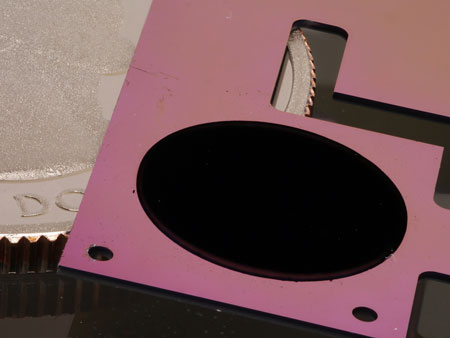 The National Institute of Standards and Technology (NIST) has demonstrated a novel chip-scale instrument made of carbon nanotubes that may simplify absolute measurements of laser power, especially the light signals transmitted by optical fibers in telecommunications networks.
The National Institute of Standards and Technology (NIST) has demonstrated a novel chip-scale instrument made of carbon nanotubes that may simplify absolute measurements of laser power, especially the light signals transmitted by optical fibers in telecommunications networks.
Jan 25th, 2013
Read more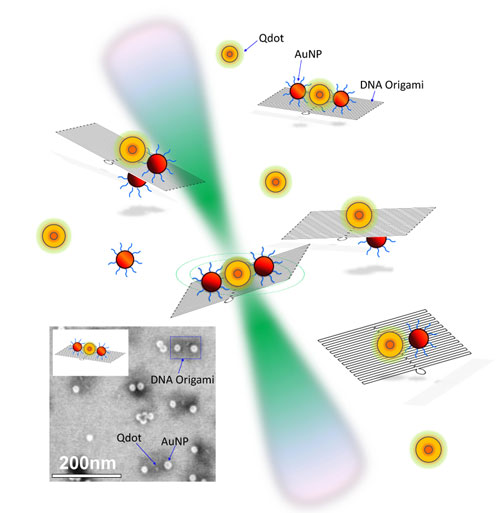 A team of researchers at the National Institute of Standards and Technology has shown that by bringing gold nanoparticles close to the dots and using a DNA template to control the distances, the intensity of a quantum dot's fluorescence can be predictably increased or decreased. This breakthrough opens a potential path to using quantum dots as a component in better photodetectors, chemical sensors and nanoscale lasers.
A team of researchers at the National Institute of Standards and Technology has shown that by bringing gold nanoparticles close to the dots and using a DNA template to control the distances, the intensity of a quantum dot's fluorescence can be predictably increased or decreased. This breakthrough opens a potential path to using quantum dots as a component in better photodetectors, chemical sensors and nanoscale lasers.
Jan 25th, 2013
Read more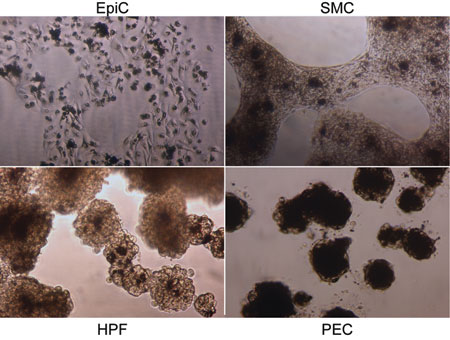 In a development that could lead to faster and more effective toxicity tests for airborne chemicals, scientists from Rice University and the Rice spinoff company Nano3D Biosciences have used magnetic levitation to grow some of the most realistic lung tissue ever produced in a laboratory.
In a development that could lead to faster and more effective toxicity tests for airborne chemicals, scientists from Rice University and the Rice spinoff company Nano3D Biosciences have used magnetic levitation to grow some of the most realistic lung tissue ever produced in a laboratory.
Jan 25th, 2013
Read moreCurrently, there are 27 companies in India involved in nanotechnology-related business activities. In addition, there are 47 nanotechnology and nanoscience-related research and community organizations in India. There are 23 academic nanotechnology degree programs in India.
Jan 25th, 2013
Read more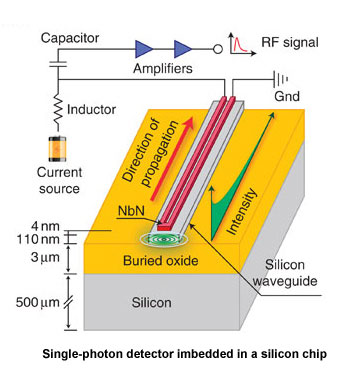 Ultrafast, efficient, and reliable single-photon detectors are among the most sought-after components in photonics and quantum communication, which have not yet reached maturity for practical application. Researchers have now achieved the decisive breakthrough by integrating single-photon detectors with nanophotonic chips. The detector combines near-unity detection efficiency with high timing resolution and has a very low error rate.
Ultrafast, efficient, and reliable single-photon detectors are among the most sought-after components in photonics and quantum communication, which have not yet reached maturity for practical application. Researchers have now achieved the decisive breakthrough by integrating single-photon detectors with nanophotonic chips. The detector combines near-unity detection efficiency with high timing resolution and has a very low error rate.
Jan 25th, 2013
Read more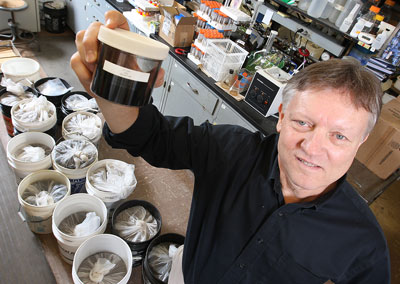 Some types of carbon nanotubes used for strengthening plastics and other materials may have an adverse effect on soil microbiology and soil microbial processes, a Purdue University study shows.
Some types of carbon nanotubes used for strengthening plastics and other materials may have an adverse effect on soil microbiology and soil microbial processes, a Purdue University study shows.
Jan 25th, 2013
Read moreResearchers at the RIKEN Advanced Science Institute in Wako have moved a step closer to realizing spintronic devices by showing that "spin information" in various materials can travel much further than previously thought.
Jan 25th, 2013
Read more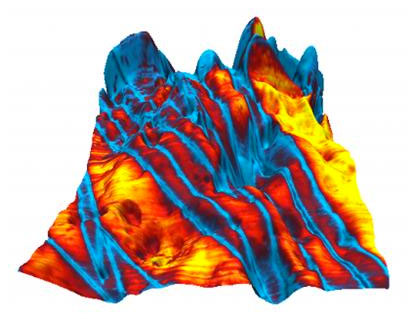 A team led by the University of Washington in Seattle and the Southeast University in China discovered a molecule that shows promise as an organic alternative to today's silicon-based semiconductors.
A team led by the University of Washington in Seattle and the Southeast University in China discovered a molecule that shows promise as an organic alternative to today's silicon-based semiconductors.
Jan 25th, 2013
Read more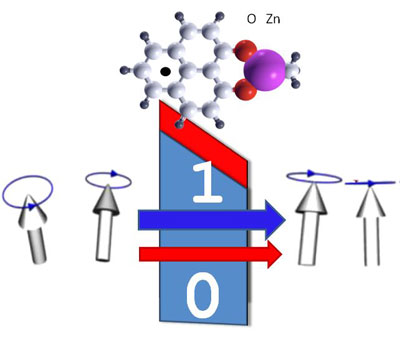 Ein internationales Forscherteam hat eine M�glichkeit gefunden, Datenmengen von bis zu einem Petabyte pro Quadratzoll zu speichern. Den Wissenschaftlern gelang es, Informationen, die im Spin eines Elektrons gespeichert sind, bei Raumtemperatur in einem organischen Molek�l zu speichern und auszulesen.
Ein internationales Forscherteam hat eine M�glichkeit gefunden, Datenmengen von bis zu einem Petabyte pro Quadratzoll zu speichern. Den Wissenschaftlern gelang es, Informationen, die im Spin eines Elektrons gespeichert sind, bei Raumtemperatur in einem organischen Molek�l zu speichern und auszulesen.
Jan 25th, 2013
Read more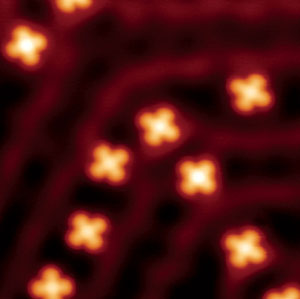 Researchers have shown that in the case of magnetic molecules deposited on a metal surface, a Kondo effect appears that reflects the local symmetry of the molecule at the adsorption site.
Researchers have shown that in the case of magnetic molecules deposited on a metal surface, a Kondo effect appears that reflects the local symmetry of the molecule at the adsorption site.
Jan 25th, 2013
Read more